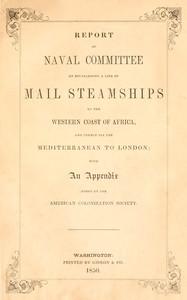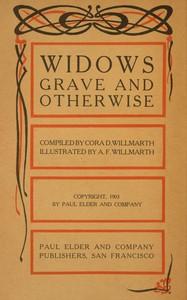|
|
Read this ebook for free! No credit card needed, absolutely nothing to pay.Words: 28829 in 8 pages
This is an ebook sharing website. You can read the uploaded ebooks for free here. No credit cards needed, nothing to pay. If you want to own a digital copy of the ebook, or want to read offline with your favorite ebook-reader, then you can choose to buy and download the ebook.

: Report of the naval committee to the House of Representatives August 1850 in favor of the establishment of a line of mail steamships to the western coast of Africa and thence via the Mediterranean to London; designed to promote the emigration of free perso@FreeBooksWed 25 Oct, 2023 Report of the Naval Committee to the House of Representatives August, 1850 REPORT OF THE NAVAL COMMITTEE TO THE HOUSE OF REPRESENTATIVES, August, 1850, IN FAVOR OF THE ESTABLISHMENT OF A LINE OF MAIL STEAMSHIPS TO THE WESTERN COAST OF AFRICA, AND THENCE VIA THE MEDITERRANEAN TO LONDON; DESIGNED TO PROMOTE THE EMIGRATION OF FREE PERSONS OF COLOR FROM THE UNITED STATES TO LIBERIA: ALSO TO INCREASE THE STEAM NAVY, AND TO EXTEND THE COMMERCE OF THE UNITED STATES. WASHINGTON: PRINTED BY GIDEON AND CO. 1850. The memorial of Judge Bryan was referred to the Committee on Naval Affairs, composed of Representatives from the following States: Fred. P. Stanton, Tenn. Thos. S. Bocock, Va. Robert C. Schenck, Ohio. Emile La Sere, La. Hugh White, N. Y. Elbridge Gerry, Me. E. Carrington Cabell, Fla. John McQueen, S. C. Lewis C. Levin, Pa. The Committee on Naval Affairs, to whom was referred the memorial of Joseph Bryan, of Alabama, for himself and his associates, George Nicholas Sanders and others, praying the establishment of a line of steamers from the United States to the coast of Africa, designed to promote the colonization of free persons of color, to suppress the African slave trade, to carry the mails, and to extend the commerce of the United States, beg leave to submit the following Report: The proposition of the memorial involves an extension of that system, recently commenced by Congress, which has for its object the creation of a powerful steam navy, to be used in time of peace in carrying the mails, and in effecting great public objects, not to be attained by private enterprise without the aid of Congress. How far it may be desirable to extend this system will depend upon the double consideration of the present condition of our naval force, and the importance and feasibility of the ends to be accomplished by the measure. As to the first of these, the committee will present a brief statement of the facts material to a correct understanding of the comparative extent of our present steam navy. In the report of Mr. Secretary Bancroft, made to the Senate on the 2d March, 1846, the total effective steam navy of Great Britain was stated, at that time, to consist of one hundred and ninety-nine vessels, of all classes; that of France numbered fifty-four; that of Russia, without the Caspian fleet, thirty-two; while the steam navy of the United States could boast of but six small vessels, and one in process of building; and of these one was for harbor defence, and another a steam-tug. Since that time, however, Congress has provided for the building of four war steamers, and for the establishment of several lines of steamships engaged in carrying the mails, consisting of seventeen large vessels, suitable for war purposes, and at all times liable to be taken for the public service. Of these latter, nine will run between New York and European ports; five between New York and Chagres; and three between Panama and San Francisco. Notwithstanding this increase in our force, it has by no means kept pace with that of other great commercial nations. The American Almanac for the present year estimates the steam navy of France at sixty-four steam vessels of war, besides a reserved force of ten steam frigates now ready, and six corvettes and six small vessels nearly ready. The French Government has also resolved to follow the example of England in establishing lines of steamers, built so as to be easily converted into ships of war, to be employed in commerce and for carrying mails, but being at all times subject to the requisition of the Government. England, also, has added largely to her steam navy, and has increased her lines of mail steamers, giving evidence that she, at least, considers this the best and cheapest mode of providing in time of peace for the exigences of war. On this subject the committee refer to the following facts, for which they are indebted to the remarks of the Hon. T. Butler King, of Georgia, made in the House of Representatives, February 19, 1848. In 1846, the Government enlarged the contract with Mr. Cunard and his associates, by adding four ships to run from Liverpool to New York, and increased the compensation to ?145,000, or about 5,000 per annum. Free books android app tbrJar TBR JAR Read Free books online gutenberg More posts by @FreeBooks
: La vita nuova by Dante Alighieri Agresti A Antonio Editor Rossetti Dante Gabriel Illustrator - Italian literature@FreeBooksWed 25 Oct, 2023

: Tuokiokuvia matkan varrelta by Ivalo Santeri - Finnish fiction 19th century@FreeBooksWed 25 Oct, 2023
|
Terms of Use Stock Market News! © gutenberg.org.in2025 All Rights reserved.






